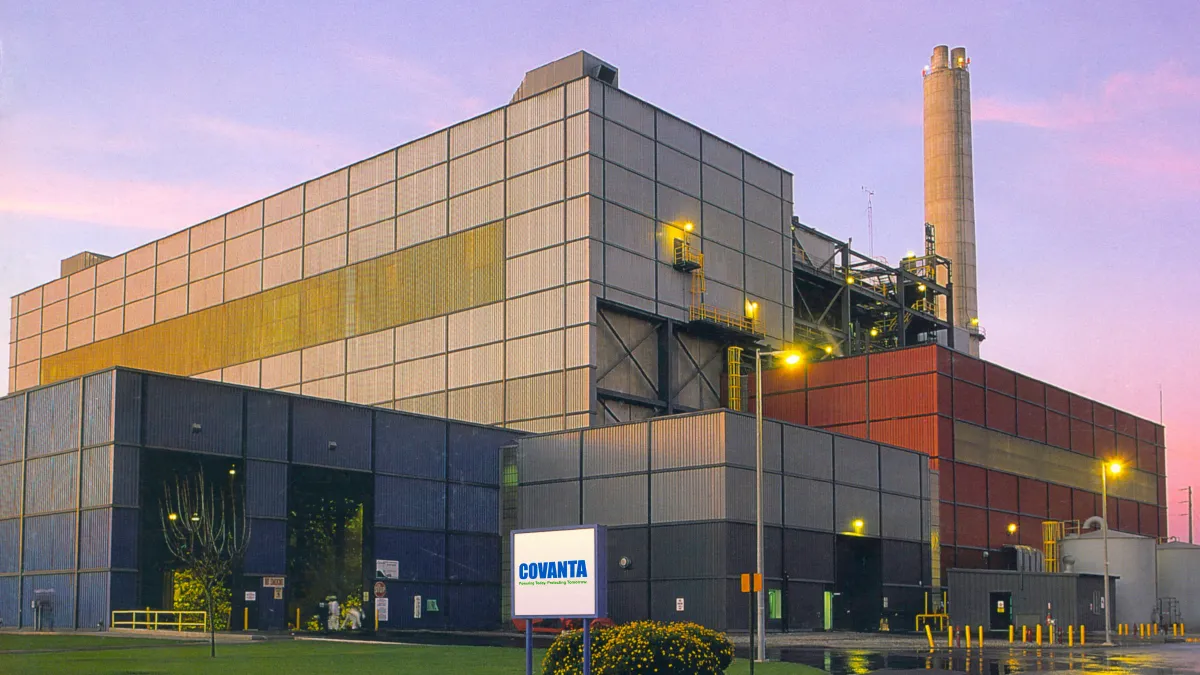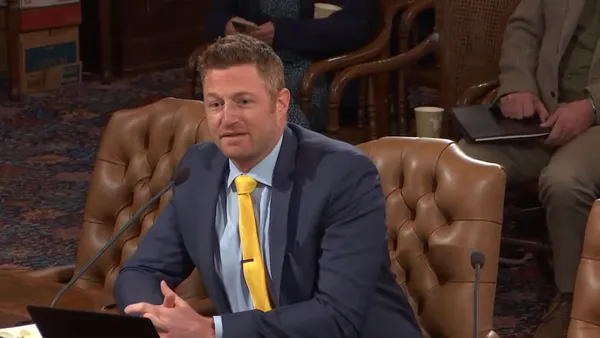Dive Brief:
- The Covanta-run mass burn combustion facility in Long Beach, California, will stop receiving deliveries of MSW on Jan. 31. Covanta will wind down operations at the Southeast Resource Recovery Facility, decommission it and turn it over to the city for demolition.
- The city of Long Beach is planning to replace the WTE facility with an organics receiving and processing facility. To that end, the city's Energy Resources Department has issued a notice of intent to contract with Bioenergy Devco to construct an anaerobic digestion facility. Negotiations are pending approval from the Long Beach City Council.
- SERFF processed more than 380,000 tons of waste and recovered more than 9,000 tons of metals per year, according to a Covanta webpage. The city will have to find alternative disposal destinations.
Dive Insight:
The SERFF began operations in 1988, and the Energy Resources Department estimates the facility has avoided 37 million tons of carbon dioxide equivalent over its lifetime. It’s one of the last two WTE facilities in California, the other being in Stanislaus County.
California has been moving away from incineration as a disposal option. In 2022, Gov. Gavin Newsom signed a law that ended jurisdictions’ ability to count incineration as a means of diverting waste from landfills under California AB 939.
That law was passed shortly after Long Beach completed $12.9 million upgrades to the 30-year-old facility, but it was already struggling financially. In 2018, SERFF lost a power purchase agreement that accounted for more than 60% of its profits, putting it in the red. The 2022 law was expected to cut volumes sent to the facility by about 148 jurisdictions in half.
Last year, Covanta and Long Beach reached a short-term deal that would allow the facility to continue operating at a loss through June 2024. That deal saw Covanta take responsibility for most operating and maintenance expenses.
Renovating the facility to ensure operation for 15 more years would have cost $66.3 million, according to an October presentation from the Energy Resources Department, a cost the city was not willing to pay.
The city released its request for proposals for an organics facility on the SERFF site in April and received two proposals. A selection committee ultimately choice Bioenergy Devco's proposal, according to the notice of intent released on Dec. 19. Following council approval, the city and company will enter exclusive negotiations over a 10-to-20-year organic waste flow agreement and lease agreement, per the document.
Bioenergy Devco and Long Beach officials declined to share details on the company’s bid, citing the pending approval from city council. City officials did not disclose the name of a second company that bid on the RFP. A spokesperson for Covanta said the company did not bid.
The city of Long Beach faces several challenges as it identifies replacement capacity. It’s currently on a corrective action plan with CalRecycle over the state’s SB 1383 organics diversion requirements. The plan requires Long Beach to contract with a facility that accepts mixed organic waste by March of this year. A city official said the timeline for a potential deal with Bioenergy Devco, however, is a “coincidence of timing” and said the city “has not considered at this point utilizing this project to satisfy this task.”
“The City believes that we need a more immediate solution for our organics processing faster than what may be the outcome out of the RFP done by Energy Resources for the SERRF location,” Erin Rowland, general superintendent of operation, waste diversion and recycling, said in an email.
City officials have previously said they were exploring sending waste to landfills in Riverside County or San Bernardino in California or outside the state in Arizona. They expect decommissioning and destroying the site will cost about $10 million.















